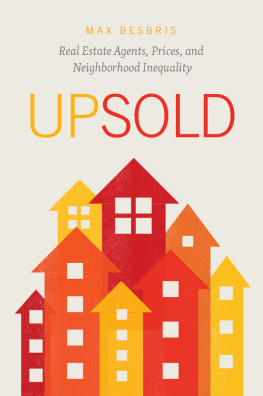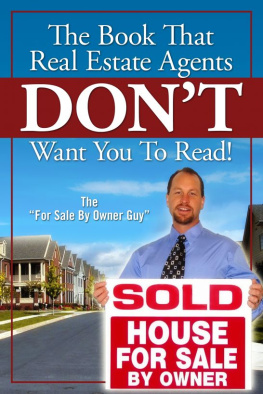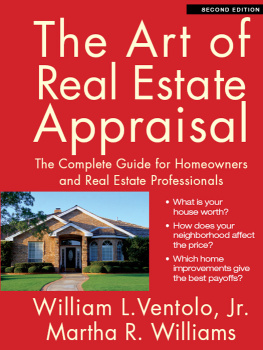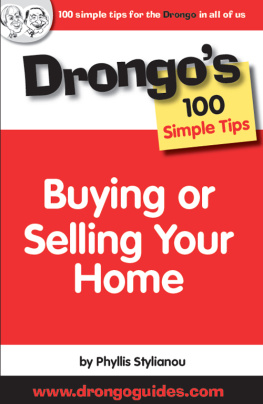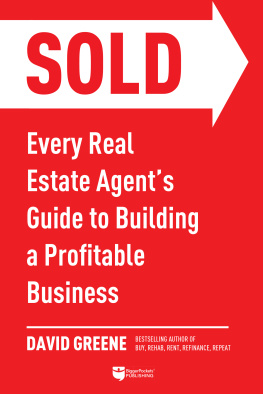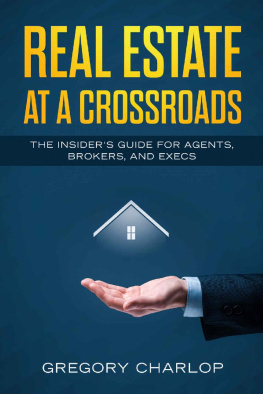Max Besbris - Upsold: Real Estate Agents, Prices, and Neighborhood Inequality
Here you can read online Max Besbris - Upsold: Real Estate Agents, Prices, and Neighborhood Inequality full text of the book (entire story) in english for free. Download pdf and epub, get meaning, cover and reviews about this ebook. year: 2020, publisher: University of Chicago Press, genre: Politics. Description of the work, (preface) as well as reviews are available. Best literature library LitArk.com created for fans of good reading and offers a wide selection of genres:
Romance novel
Science fiction
Adventure
Detective
Science
History
Home and family
Prose
Art
Politics
Computer
Non-fiction
Religion
Business
Children
Humor
Choose a favorite category and find really read worthwhile books. Enjoy immersion in the world of imagination, feel the emotions of the characters or learn something new for yourself, make an fascinating discovery.
- Book:Upsold: Real Estate Agents, Prices, and Neighborhood Inequality
- Author:
- Publisher:University of Chicago Press
- Genre:
- Year:2020
- Rating:3 / 5
- Favourites:Add to favourites
- Your mark:
- 60
- 1
- 2
- 3
- 4
- 5
Upsold: Real Estate Agents, Prices, and Neighborhood Inequality: summary, description and annotation
We offer to read an annotation, description, summary or preface (depends on what the author of the book "Upsold: Real Estate Agents, Prices, and Neighborhood Inequality" wrote himself). If you haven't found the necessary information about the book — write in the comments, we will try to find it.
Max Besbris: author's other books
Who wrote Upsold: Real Estate Agents, Prices, and Neighborhood Inequality? Find out the surname, the name of the author of the book and a list of all author's works by series.
Upsold: Real Estate Agents, Prices, and Neighborhood Inequality — read online for free the complete book (whole text) full work
Below is the text of the book, divided by pages. System saving the place of the last page read, allows you to conveniently read the book "Upsold: Real Estate Agents, Prices, and Neighborhood Inequality" online for free, without having to search again every time where you left off. Put a bookmark, and you can go to the page where you finished reading at any time.
Font size:
Interval:
Bookmark:
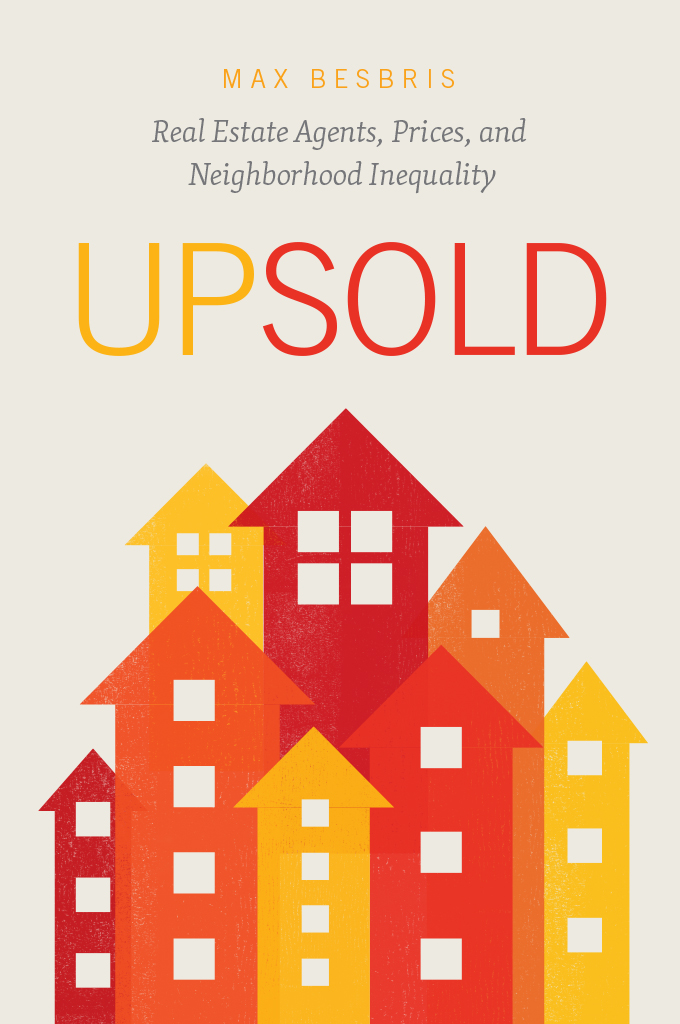
MAX BESBRIS
The University of Chicago Press
Chicago and London
The University of Chicago Press, Chicago 60637
The University of Chicago Press, Ltd., London
2020 by The University of Chicago
All rights reserved. No part of this book may be used or reproduced in any manner whatsoever without written permission, except in the case of brief quotations in critical articles and reviews. For more information, contact the University of Chicago Press, 1427 E. 60th St., Chicago, IL 60637.
Published 2020
Printed in the United States of America
29 28 27 26 25 24 23 22 21 20 1 2 3 4 5
ISBN-13: 978-0-226-72123-1 (cloth)
ISBN-13: 978-0-226-72137-8 (paper)
ISBN-13: 978-0-226-72140-8 (e-book)
DOI: https://doi.org/10.7208/chicago/9780226721408.001.0001
Library of Congress Cataloging-in-Publication Data
Names: Besbris, Max, author.
Title: Upsold : real estate agents, prices, and neighborhood inequality / Max Besbris.
Description: Chicago : University of Chicago Press, 2020. | Includes bibliographical references and index.
Identifiers: LCCN 2020004956 | ISBN 9780226721231 (cloth) | ISBN 9780226721378 (paperback) | ISBN 9780226721408 (ebook)
Subjects: LCSH: HousingNew York (State)New YorkFinance. | Discrimination in housingNew York (State)New York. | Real estate agentsNew York (State)New York.
Classification: LCC HD7304.N4 B473 2020 | DDC 333.33/8097471dc23
LC record available at https://lccn.loc.gov/2020004956
 This paper meets the requirements of ANSI / NISO Z39.48-1992 (Permanence of Paper).
This paper meets the requirements of ANSI / NISO Z39.48-1992 (Permanence of Paper).
Ben, a corporate accountant in his mid-thirties, grew up in what he described as an affluent suburb of Minneapolis. His father, a doctor, and his mother, a nurse, had bought a house before Ben was born. They still lived there and had recently paid off their standard thirty-year mortgage. Thats obviously not the kind of house I think Ill ever want to buy, Ben said, referring to the three-bedroom tract-style home familiar to suburban subdivisions across the United States. Ben had moved to New York City right after graduating from an elite East Coast university and said he didnt want to live anywhere else.
For the past six years Ben had been renting a one-bedroom apartment in Williamsburg, a neighborhood in Brooklyn on the East River that provided relatively easy access to Bens work in downtown Manhattan. He told me he had had enough of renting. Its the right time for me to buy, he said. I have the money to get something for myself. After studying his finances, he decided his price ceiling was $600,000. With the property market in Williamsburg extremely hot, Ben knew he might have to leave the neighborhood. But I want to stay in Brooklyn, he said, Ive been here the whole time and I like it.
A coworker of Bens who had recently bought in Williamsburg referred him to Liz, a real estate agent. Bens coworker had praised Lizs thoroughness and attentiveness. Liz, a white woman in her mid-forties, prided herself on knowing the housing market in northern Brooklyn, including Williamsburg, as well as the intimacy she cultivated with her clients. Its good for business, she told me. If I know you really well, Im going to get you the place you really want. Most of Lizs clients over the past few years looked like Benwhite people in their twenties, thirties, and forties who worked in industries like finance, tech, public relations, publishing, and advertising.
Ben and Liz hit it off. I trailed along over the next four months as the two attended open houses and scheduled showings. As they walked through one newly renovated kitchen after another, they discussed what Ben saw in his future. How was his life going to unfold? Would he stay at his current job for long time? Did he ever want to get married? have kids? Liz shared details about her own life as they grabbed coffees and quick meals in between apartment viewings.
But something else was happening during their interactions. Liz would often bring up the tightness of the markethigh prices and low inventoryand the need to make offers quickly. Although Ben had said he wanted to spend less than $600,000, Liz consistently brought him to open houses at apartments priced between $640,000 and $700,000. When they were visiting these pricier places, Liz would talk about how it was worth spending just a little bit more to get a lot morean apartment in a new building with an elevator instead of one in a prewar walk-up, for instance. More importantly, if Ben spent a little more hed get the status that came with owning an apartment in a new building and, as Liz put it, the ability to start a brand-new life.
Liz also frequently mentioned other buyers she had recently represented who she said shared similar tastes with Benin restaurants, bars, and other amenitiesand she would reference their occupations and share details about their housing searches. She would say how these other clients were living great lives in the neighborhoods where they had bought homes and told Ben that he oo would soon find the right apartment in the right part of town.
On one visit to an apartment in a newer building with an elevator, listed at $660,000, Liz and Ben both seemed excited. They talked about the view, the size of the unit, and the loveliness of the Lower East Side, the neighborhood in Manhattan where the apartment was located. This place is just so you, Liz said. A day later, Ben called Liz and told her to make an offer on the apartment for $650,000. Ben would not be living in Williamsburg, and he paid significantly more than his stated budget of $600,000. And yet he seemed thrilled.
Where do preferences come from? How do consumers decide that certain goods and services are worth their cost? How do these decisions aggregate into broader market patterns and produce inequality?
Upsold addresses these questions by looking at the housing market. In examining how real estate agents guide buyers through the process of searching for a home, Upsold provides insights into economic decision-making, including how buyers come to pay the prices they do, and the role of market intermediaries in shaping taste preferences in unequal ways. More broadly, it shows how face-to-face interactions between buyers and agents produce neighborhoods, some which are or are soon to become elite and exclusive places where aspiring residents can expect ever-rising housing prices.
Houses are important to the people who live in them for many reasons. They provide shelter from the elements, privacy from others, and proximity to schools, labor markets, social networks, and various other amenities. Housing is a fundamental human right, enshrined by the United Nations as part of a package of goods and services necessary for the maintenance of an adequate and humane standard of living. Housing is also a source of debt and an opportunity to accumulate wealth that can be passed down to future generations. Scholars have been trying to understand the contradictions of the housing marketis housing a commodity or is it a right?for hundreds of years. In 1872 Friedrich Engels published a set of essays, The Housing Question, in which he argued that any market for housing was unjust and that the only solution was collective ownership not only of housing but of all means of production. As he pointed out, people need, and have the right to, a place to live, and yet a commodified housing market creates incentives that prevent universal access to housing.
Next pageFont size:
Interval:
Bookmark:
Similar books «Upsold: Real Estate Agents, Prices, and Neighborhood Inequality»
Look at similar books to Upsold: Real Estate Agents, Prices, and Neighborhood Inequality. We have selected literature similar in name and meaning in the hope of providing readers with more options to find new, interesting, not yet read works.
Discussion, reviews of the book Upsold: Real Estate Agents, Prices, and Neighborhood Inequality and just readers' own opinions. Leave your comments, write what you think about the work, its meaning or the main characters. Specify what exactly you liked and what you didn't like, and why you think so.

